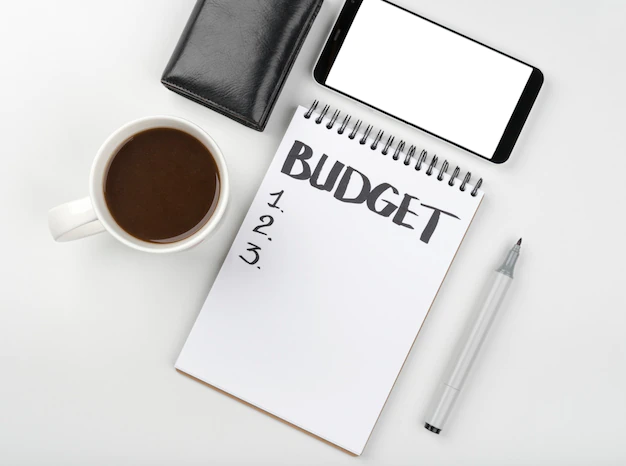When it comes to managing your finances, creating a budget is an essential step. A budget is simply a plan for how you will spend your money. It can help you prioritize your expenses, avoid overspending, and save money for the future. However, creating a budget can be overwhelming, especially if you’re not sure what to include.
So, what should your budget include? This helpful article will provide you with insights as to what things ought to be included in your budget.
Essential Budget Categories
When it comes to creating a budget, it can be overwhelming to figure out where to start. However, there are some essential budget categories that you should include in your plan to help you manage your finances effectively.
Housing
Housing is usually the biggest expense for most people. If you’re a renter, include your rent payment in this category. If you’re a homeowner, include your mortgage payment, property taxes, and homeowner’s insurance. Don’t forget to include maintenance costs, such as repairs and upgrades.
Utilities
Utilities are another essential budget category. This includes your electricity, gas, water, and internet bills. Make sure you include any other recurring bills, such as your cell phone or cable bill.
Food
Food is a necessary expense, but it’s also one that can quickly add up. Include your grocery bills and any money spent on eating out or ordering food delivery. Consider setting a budget for this category to help you stay on track.
Transportation
Transportation costs can include gas, car maintenance, and public transportation fees. If you have a car loan or lease, include that as well. Ensure you’re accounting for all your transportation needs, whether commuting to work or running errands.
Insurance
Insurance is an important expense to include in your budget. This can include health insurance, car insurance, and home insurance. Don’t forget to include any other types of insurance you may have, such as life insurance or disability insurance.
Debt Payments
If you have any debt, it’s important to include those payments in your budget. This can include credit card debt, student loans, or car loans. Ensure you pay at least the minimum payment each month to avoid late fees or penalties.
Savings
Savings should be a priority in your budget. This can include contributions to a retirement account, an emergency fund, or a general savings account. Make sure you’re setting aside money each month to help you reach your financial goals.
By including these essential budget categories in your plan, you’ll better understand your finances and be able to make more informed decisions about your money. Remember, creating a budget is a process, and it may take some time to figure out what works best for you.
Discretionary Expenses
When creating a budget, it’s important to include discretionary expenses, which are non-essential items that you can purchase if you have money leftover. These expenses are wants rather than needs and can vary from person to person. Some common discretionary expenses include entertainment, dining out, and personal spending.
Entertainment
Entertainment expenses include movie tickets, streaming services, and membership to clubs or gyms. It’s important to budget for entertainment expenses, as they can add up quickly and eat into your savings. Consider looking for sales or discounts on entertainment options to help keep costs down.
Dining Out
Dining out can be a major expense for some people. It’s important to budget for dining out expenses and try to limit how often you eat out. Consider cooking at home more often or packing your lunch for work to help reduce your dining out expenses.
Personal Spending
Personal spending can include things like clothing, accessories, and hobbies. It’s important to budget for personal spending, but also to keep it in check. Consider setting a limit on how much you can spend on personal items each month and stick to it. You can also look for sales or discounts on items you want to purchase.
When creating your budget, it’s important to keep in mind your monthly income and necessary expenses, such as rent, utilities, and groceries. Once you’ve accounted for those expenses, you can allocate a portion of your income towards discretionary expenses. Consider using a budget calculator or worksheet to help you track your expenses and make sure you’re staying within your budget.
Remember, it’s important to prioritize saving and investing for your future financial freedom. Consider allocating a portion of your income towards a savings account or investing in a 401(k) or other investment options. By budgeting for discretionary expenses and tracking your spending, you can work towards achieving your financial goals and avoiding a budget deficit.
Conclusion
In conclusion, creating a budget is essential to financial stability and achieving your financial goals. A well-planned budget can help you track your expenses, identify areas where you can cut back, and save for the future. By including all of your income sources and expenses, you can get a clear picture of your financial situation and make informed decisions.
When creating your budget, remember to include all of your income sources, whether it’s your primary source of income or a side hustle. Additionally, make sure to include all of your expenses, including fixed expenses like rent and utilities, as well as variable expenses like groceries and entertainment.
One helpful tip is to break down your expenses into categories, such as housing, transportation, food, and entertainment. This can help you identify areas where you may be overspending and make adjustments accordingly.
Another important aspect of budgeting is to regularly review and adjust your budget as needed. Life changes can impact your finances, so it’s important to stay flexible and make changes when necessary.
Overall, creating and maintaining a budget takes time and effort, but it’s well worth it in the long run. By taking control of your finances and creating a budget that works for you, you can achieve your financial goals and live a more financially stable life.
YOU SHOULD ALSO READ:











